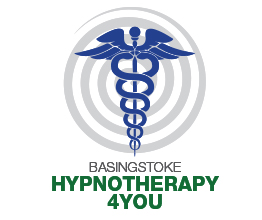Four healthy habits to help you stay sober in Basingstoke
/According to the National Institute on Drug Abuse, 40-60 percent of people in recovery will relapse. This is roughly in line with relapse rates for other chronic diseases, such as diabetes, high blood pressure, or asthma. Despite this fairly high relapse rate, addiction is considered a treatable disease, and researchers have identified many techniques that can help you on the path to recovery. Here are four healthy habits you can take up to improve your odds of success.
Exercise Regularly
Many studies show that a physical exercise routine can help people in recovery. Exercise works by undoing the damage that substance abuse can do to the body and brain. Very soon after you start an exercise routine, you start to see improvements in your fitness, general health, and appearance. This can help rebuild feelings of competence and self-confidence, things that substance abuse may have broken down.
But exercise also has a direct effect on withdrawal symptoms. It changes the brain in a way that reduces the strength of cravings, helping you to stay on track. Another benefit of exercise is that it reduces symptoms of depression and anxiety. This is crucial because unpleasant emotions often play a role in relapse.
Eat Well
There is more to recovery than sobriety, although of course, that is the key aspect of it. Substance abuse can harm the body, both through direct, toxic effects of the substances and through the poor lifestyle choices that tend to go hand in hand with it. For example, substance abuse can cause deficiencies in nutrients, which increases the risk of various diseases. According to MedlinePlus, healthy eating is a crucial part of repairing this damage and can help prevent relapse, too. Try to stick to regular mealtimes and eat foods high in fibre. Eat plenty of fruits and vegetables and avoid processed foods as much as possible. Many people in recovery become dehydrated, so make sure you drink plenty of water.
Stay Connected
It’s normal to feel lonely when you’re in recovery because your previous social life has been completely removed. This loneliness can cause some people to seek out old friends, which can be a slippery slope back to old habits. The solution is to build new friendships. This is why group therapy is so useful—you’re forming new connections with people, supporting each other in building new, healthier habits. So make the most of these group sessions. Volunteer work, taking up a team sport, or starting a hobby you can do in a group setting are other good ideas. When you feel ready, recovery also enables you to rekindle old relationships with friends and family members, which may have been damaged in the past.
Practice Meditation
At its core, meditation is the practice of learning to control the mind. The goal is to hold your attention on your breathing or the sensations in the body and keep it there as long as you can. When your mind wanders, you notice this and bring it back to the object of awareness. Many studies show that this simple practice can help reduce the risk of relapse in recovery. A craving is like a magnet, pulling your thoughts, feelings, and actions in a certain direction. With meditation, you develop the strength to resist this pull and direct your thoughts and actions something else. Meditation is also an effective stress-reduction technique, so it will help keep your mind calm, peaceful, and relaxed.
Research has shown that people are more likely to recover from substance abuse if they attack the problem from several angles. This means going to counselling and group therapy sessions regularly, taking medication as advised, and taking up multiple self-care habits outside of formal treatment.
Should you need a little help with enjoying a healthy drink free life, and live in Basingstoke just call, it’s easier than you think.
For more information to overcome your challenge just contact me Steve Thomas.
It's much easier than you think.
Article courtesy of www.tuck.com
Need more help just contact me now.
Photo: Pixabay






